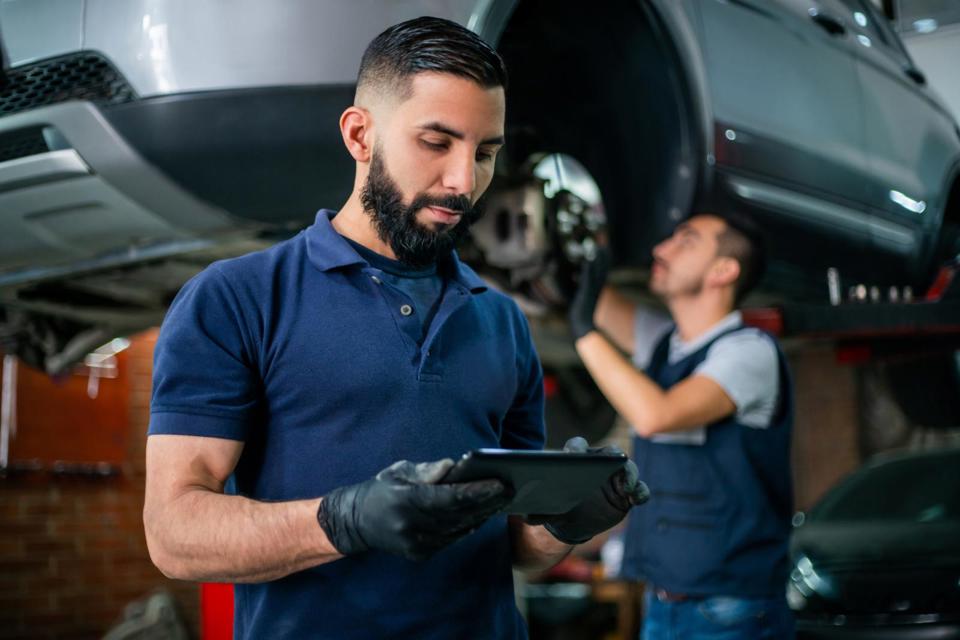Vehicle off road times – the time between when a car or van enters a workshop and is finally repaired – have increased, according to new data from Epyx.
In 2023, the average was 1.91 days compared to 1.74 in 2022 and 1.63 in 2021.
The figures from Epyx’s 1link Service Network platform, used by vehicle operators totalling more than four million units to manage and process service, maintenance and repair (SMR), also shows that the average time between when a company car or van booking was created to when the vehicle went in for work has increased.
It has risen from 11.87 days in 2021 to 12.92 in 2022 to 13.74 in 2023.
The increases are being driven by an increase in average age of fleet cars and vans, which is continuing to rise, according to Epyx.
For the whole of last year, the average age of a fleet car at the point of service or repair was 3 years, compared to 2.86 in 2022, 2.74 in 2021, 2.55 in 2020 and 2.40 in 2019.
For vans, the corresponding figures were 3.58 years old in 2023, 3.39 in 2022, 3.25 in 2021, 3.16 in 2020 and 3.03 in 2019.
Tim Meadows, chief commercial officer at Epyx, said: “What is perhaps surprising in looking at our statistics, bearing in mind that vehicle supply has improved substantially, is that the rate of ageing does not appear to be slowing and is still increasing for both cars and vans.
“It’s clearly going to take some time for this metric to stabilise and start to fall.”
Meadows explains that this aging fleet has repercussions for vehicle operations in practical terms.
“Older vehicles, especially those with higher mileages, will always tend to need more SMR,” he said. “They especially have an increased propensity for major components to fail, such as gearboxes. This is not just expensive, but means cars and vans spend more time in workshops, unavailable for use.”
He continued: “Because fleet vehicles are generally needing more SMR as they age, there is more downtime. Again, this is just an unavoidable effect of operating ageing cars and vans.
“It also means providers of SMR are under pressure to meet the needs of these older fleets. It is a question of an increased degree of demand meeting a level of capacity that is largely unchanged, and lead times are continuing to rise.”
All of these findings underlined the need for fleets to proactively examine their SMR strategies regularly, he said, to extract the maximum useability and value from older fleet assets.
“Fleets are very much in a position where the cost of parts and labour is rising, while their need for SMR is also increasing thanks to these ageing fleets,” said Meadows.
“We’re engaged in ongoing conversations with many of our customers about the best ways that our technology can be used to minimise spending in this area as much as possible and there are many interesting and effective measures being put in place.”






















martinwinlow - 29/01/2024 14:18
Are they all waiting for decent e-vans to come along, I wonder? Perhaps they should all write to BYD to chivy them into landing firmly in the UK. I also wonder if Europe is going to go to (economic) war with BYD et al because they will eventually so severely undercut 'the usual suspects's EV offerings (cars and vans) that many of them will face bankruptcy. If so, I can see the UK becoming an EU-wide hub for supplying Chinese EVs via a 'back door'...